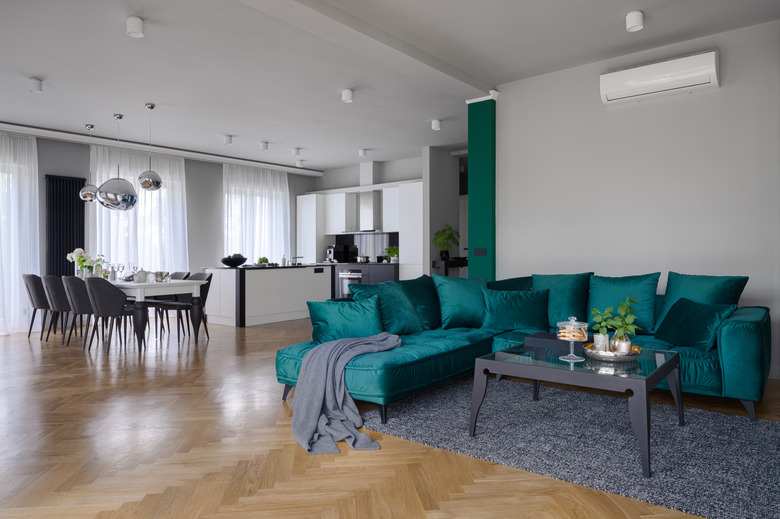Advantages And Disadvantages Of Air Conditioners
We may receive a commission on purchases made from links.
Before the 1940s, when window air conditioners began to become popular, there weren't a lot of options for cooling down a room at will. If the weather was hot, so was your home. Today, you may not be able to imagine life without air conditioning. There's no obvious downside to air conditioning when you're struggling through a heat wave, but like many kinds of appliances in your home, there are pros and cons to using your air conditioners that you may not think about when you hit the "on" button.
Advantages of Air Conditioners
Advantages of Air Conditioners
Anyone who has stepped into an air-conditioned space on a steamy day is well aware that comfort is the primary advantage of using air conditioners. Being able to set and maintain a comfortable temperature during hot weather is wonderful for your mood, and it can be a critically important health measure for vulnerable people. For the elderly, infants, people with certain medical conditions, and some pets, high body temperature can be dangerous and can even trigger a medical event.
Room temperature also has a significant relationship to sleep quality, so having the ability to quickly cool down bedrooms is important if everyone in your home is going to get a good night's sleep during a heat wave.
Using air conditioners can also sometimes improve air quality within your home compared to the alternative of opening doors and windows on a hot day. People with asthma, allergies, and other respiratory issues may experience symptoms when they breathe in fresh air during a high-pollen day or when there's smoke or other contaminants in the air. Running air conditioners keeps the home comfortable without triggering anyone's allergies.
Disadvantages of Air Conditioners
Disadvantages of Air Conditioners
According to the U.S. Department of Energy, a whopping 6 percent of all electricity used in the United States is used to run air conditioners. Generating all that electricity emits about 117 million metric tons of carbon dioxide each year, harming the environment and contributing to climate change, but for most people, cost is the biggest disadvantage to using air conditioners. The upfront and maintenance costs can be significant, especially for central air conditioning systems.
Your electric bill also goes up every time you turn on the A/C. How much you'll pay to run your air conditioning depends on a number of factors, including the type of air conditioner you have, the temperature to which you set the A/C, and the cost of electricity in your area. On a hot day, running central air conditioning in a home of average size for eight hours will generally add at least a few dollars to the monthly electric bill. Running a window air conditioner is much cheaper but may still cost more than a dollar a day.
There's also a flip side to the air quality issue. Air conditioners can sometimes worsen asthma, allergies, and other breathing problems, largely because they may create a breeding ground for mold. If someone smokes near the air intake even once, the air that your A/C pumps into your home may smell like cigarette smoke for a long time afterward. (These risks can be mitigated by doing regular maintenance on your air conditioners.)
Staying Cool Efficiently
Staying Cool Efficiently
While air conditioners aren't perfect, most people would say that having A/C is preferable to going without. There are a few ways to save money on air conditioning and minimize your energy consumption while enjoying cool comfort.
Choose ENERGY-STAR-certified window units, which use much less energy than other room air conditioners. If your home has central air conditioning, install a smart programmable thermostat so you can track your A/C usage and control the unit from anywhere. Set calendar alarms reminding you to clean air conditioner filters about once a month, which is essential for efficient operation. Finally, consider supplementing your air conditioning by installing remote-controlled ceiling fans in bedrooms. They should keep rooms cool overnight even if your A/C is off.
